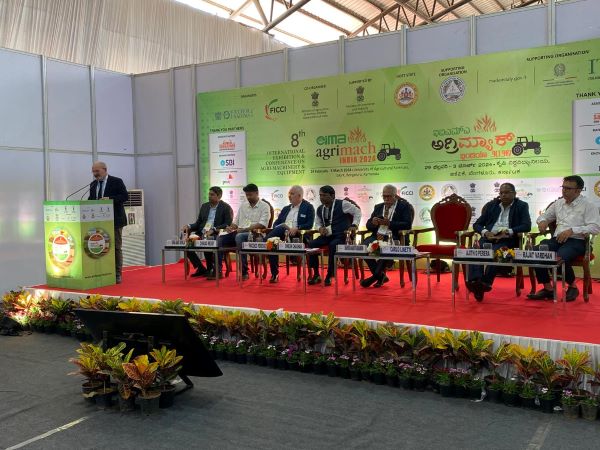India’s agricultural economy has experienced rapid growth over the past 50 years. The country has achieved food self-sufficiency, but the primary sector still suffers from income and environmental imbalances. Investments in innovative machinery help to improve productivity and to reduce resource consumption and chemical inputs.
The primary sector plays a strategic role in the stability of India’s economic system. In fact, World Bank data indicate that agriculture produces 17% of the national GDP and provides a direct livelihood to 60% of the more than 1.4 billion inhabitants. The adoption of modern cultivation practices, the use of fertilisers, the application of phytosanitary treatments, the mechanisation of the countryside, have favoured the growth of the sector, allowing the country to achieve food self-sufficiency and to become one of the “agricultural centres of the world”. Today, India is the world’s leading producer of milk, legumes and spices; the second producer of rice, wheat, cotton and sugar cane. This was discussed during the conference on “Innovation in the agromechanical sector as the key to a sustainable future”, which was held on the opening day of EIMA Agrimach India.
The meeting, which was moderated by Guna Nand Shukla, Director – Agriculture and Natural Resources at PWC , was attended by Ashok Anantharaman, COO at ACE; Dinesh Chauhan, CEO and Head of AIP ICRISAT; Carlo Linetti, president of AgriDigital; Ajith D. Perera; Chair & Executive Secretary Asia Pacific Trade Agreement; Vincenzo Perrone, president Kohler Engines; M. Chirag Reddy, Senior Research Scientist at Fasal; Rajat Vardhan, co-founder & CEO at AgroNXT, and addressed the issue of the sustainable development of Indian agriculture. As many observers have pointed out, the rapid growth process experienced by the subcontinent’s primary sector has not been without imbalances. Even today, a very substantial part of the population – 22% – has difficulty in accessing food resources, while the growth of agricultural incomes has been insufficient to bridge the gap with other economic sectors.
India’s agricultural economy also has to face environmental problems related not only to the exasperated exploitation of land and water resources, but also to extreme events, first of all, cyclones and heat waves, that increasingly affect the Indian territory. In this context, the speakers explained, the use of innovative machinery has a fundamental role in ensuring the healthiness of production, rationalising the use of inputs, reducing the consumption of natural resources and preserving the integrity of the soil. Modern technologies applied to agriculture, in particular digital ones – it was emphasised during the conference – already provide all the necessary tools for a transition of the Indian agricultural economy towards more productive, more rational and more profitable cultivation systems.
A fundamental aspect of this process is the one related to engine evolution, as highlighted by the president of Kohler Engines Vincenzo Perrone in his speech. The Kohler company – said Perrone – is preparing to launch from January 2026 a Stage V engine on the Indian market. The company is also developing renewable diesel and hydrogen engines, which will offer increasingly better performance by combining power and sustainability.








